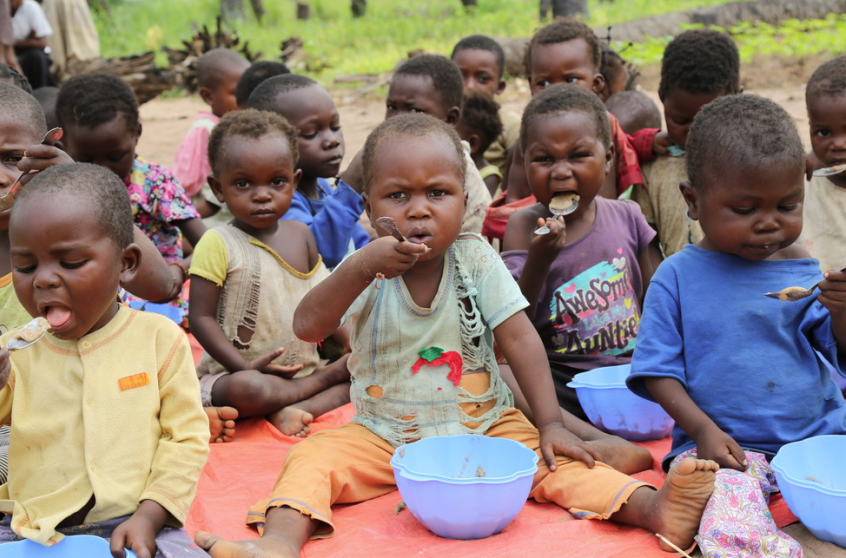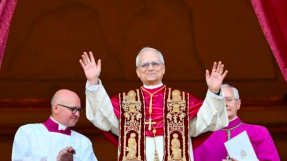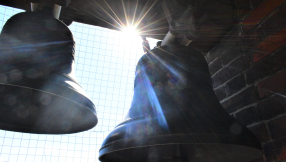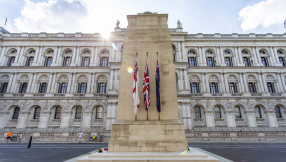Millions of people caught up in a humanitarian crisis in the Democratic Republic of Congo risk rising levels of hunger, death and disease due to a lack of aid funding, a coalition of humanitarian organisations warned ahead of a conference in Geneva today.
The donor conference aims to raise $1.7 billion to help more than 10 million people in desperate need across the country. To date only 12 per cent has been funded.

Last year's appeal for a smaller amount was poorly funded, the agencies say, forcing many of them to cut back or discontinue providing clean water, food and safety for people forced to flee their homes due to violent conflict.
Anne-Marie Connor, World Vision's DRC country director, said: 'More than 60 per cent of those in need of humanitarian assistance in the DRC are children: 7.9 million girls and boys under the age of 18 are in dire need of support to survive and to thrive. Urgent funding is needed to protect children affected by the crisis and to build long-term resilience in their communities.'
A number of factors including violent conflicts and chronic poverty have left an estimated 13 million people in urgent need of humanitarian assistance – 5.6 million more than 2017.
In 2017, only 1.7 million people out of the 4.6 million in need of clean water and sanitation received help, leaving people drinking filthy water, defecating in the open and facing high risks of contracting water-borne diseases. Of the 4.1 million people who were acutely malnourished only 521,600 received treatment. Today 7.7 million people are suffering from acute hunger.
The poor condition of roads means that in a country as big as Western Europe there is a huge delay and increased costs to reach areas in need. Insufficient funding for logistics and security limit the ability to deploy quickly. The UN's fleet of helicopters which are the often the only means to transport aid to some areas may be cut due to decreased funding.
Jose Barahona, Oxfam's Country Director in DRC, said: 'The lack of funding forces us to make choices we shouldn't have to make. We have had to limit our work to specific areas and we can only help a fraction of the people who desperately need it. In November 2017, in the conflict-ridden Kasaï provinces, we had to halve food rations to 90,000 people – last month we had to restrict the rations even further with over a quarter of people receiving no food at all. Governments and international donors should learn from the past. Without sufficient aid, many Congolese people will not get the help they desperately need.'
Malek Akchour, Danish Refugee Council's DRC country director, said: 'DRC has one of the highest percentages of children out of school, which is in many areas often due to insecurity. In addition to contributing to children's education and development, schools provide a protective environment that reduces the risk of exploitation and abuse. Assisting schooling efforts and promoting children's protection and development should be a key donor priority.'
Bernard Balibuno, CAFOD's DRC country representative, said: 'It is critical that we act now. Governments and international donors need to urgently support the funding gap. Without aid many vulnerable people will not survive. Every day, families face the horrors of conflict and violence, they have lost everything; their homes have been looted and burnt to the ground, along with clinics and schools.'
However, despite agreement among aid agencies and the international community on the scale of the disaster facing the country, the DRC's government has boycotted the donor conference accusing participants of exaggerating the problem. It is seen as reflecting badly on the government of Joseph Kabila, whose refusal to step down after the end of his presidential term precipitated an ongoing political crisis. An opposition statement linked the desperate humanitarian situation to the actions of the Kabila regime, saying: 'This humanitarian crisis is not a result of an unpredictable natural disaster; it is a man-made tragedy. It has been marked by violence, often state-sponsored, harsh political repression, and flagrant and repeated violations of our people's most basic rights.'













